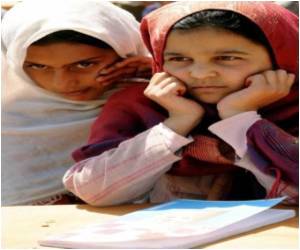
"Our greatest challenge consists in maintaining access to the areas hardest hit by the fighting, but the increase in the number of armed groups is making this much harder for us," said Reto Stocker, head of the ICRC delegation in Kabul.
An ICRC spokesman in Geneva, Christian Cardon, told journalists that many of the new groups were "criminal gangs, which are not motivated by politics but by money."
The ICRC, which prides itself on its neutrality, also reported a "drastic increase" in the number of weapon-related amputations in southern Afghanistan around Lashkar Gah, Helmand province.
Around 30,000 international troops are deployed in the southern Taliban heartlands of Helmand and Kandahar provinces.
About 1,000 patients with weapon-related injuries were registered at the Mirwais Regional Hospital in Kandahar in August and September 2010, almost twice as many as the same period last year, the ICRC said in a statement.
Advertisement
"This is just the tip of the iceberg, as those who suffer other sorts of injuries or contract disease as an indirect result of the conflict far outnumber weapon-wounded patients," said Stocker.
Advertisement
Source-AFP







